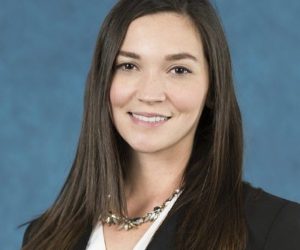In a Q&A, Bioengineering doctoral candidate Ana P. Peredo explains how the idea of “regeneration” motivated her to join WIVA, Wharton Social Impact’s impact investing program.
Why would you — a bioengineering Ph.D. student — seek to join WIVA?

“As a high school student, I was motivated to study bioengineering because of its potential to generate impact through technical innovation. To me, bioengineering was a way to apply engineering principles to create medical technology in the hopes of devising solutions for global health concerns.
Though I have gained significant understanding of the current pressing healthcare needs, I felt that I was missing a key understanding of how investors think about social impact. To better understand how to apply my science background to the impact space, I joined WIVA. I also wanted to venture outside of healthcare and learn about other important social impact sectors such as education, energy, and environment, all of which WIVA explores in its deal-sourcing process.”
What have you learned through WIVA that you have not been exposed to before?
“I learned how to assess early-stage startups for their impact and return-on-investment potential, as well as how to rigorously analyze company financials and projections.
I also had the opportunity to meet leading social impact professionals through WIVA. I attended a Wharton Social Impact Initiative event with Vincent Stanley, the Director of Philosophy at Patagonia. From this discussion, I learned about how the word ‘sustainable’ continues to be misused by companies and how companies should try to ‘regenerate’ the resources they consume to be truly deemed sustainable.
This conversation brought to mind my research experience with regeneration — could I use my WIVA deal-sourcing techniques to find impactful startups that use this concept?”
Continue reading at Wharton Stories.
